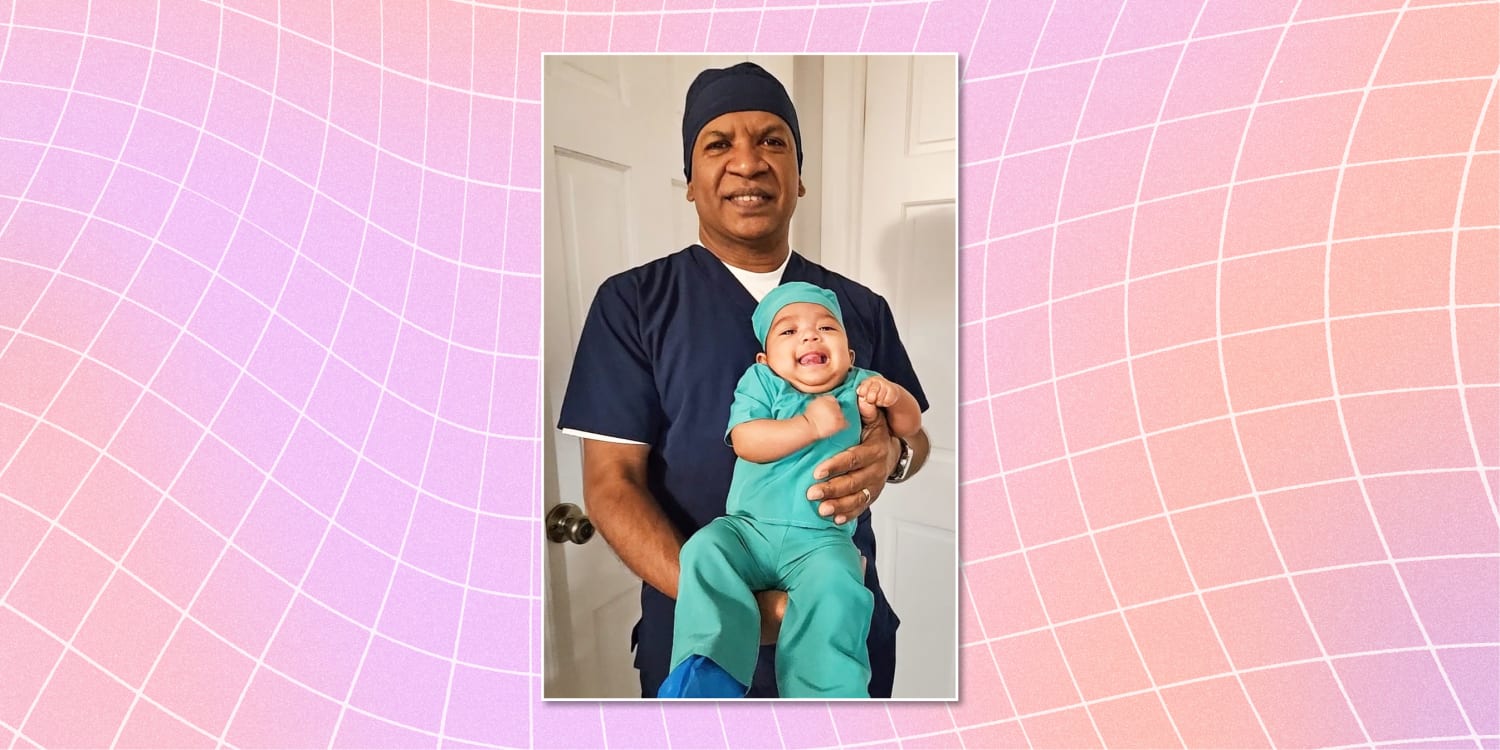A man who was soon to become a father discovered he had suffered a heart attack after ignoring symptoms for several days, despite believing he was in good health

In early March 2023, Reish Baboolal experienced shortness of breath. Initially attributing it to exhaustion, he took time off from work. However, upon attempting to return to his job as a patient care assistant, he continued to struggle with breathing, prompting his supervisor to advise seeking medical attention. In the emergency room, doctors swiftly identified the issue.
“I thought maybe I had a minor respiratory issue, perhaps coming down with a cold,” recalls the 51-year-old New Yorker. However, medical examinations revealed three blockages in his heart, leading to congestive heart failure and ultimately a heart attack.
The diagnosis and the need for triple bypass surgery left him deeply shocked. “I was healthy. I exercise. I eat properly,” he reflects. “I wasn’t expecting a condition like this.”
Breathing difficulties first arose in the spring of 2023, three days before his hospital visit. Despite feeling excessively tired, Baboolal wasn’t particularly alarmed. His wife was 12 weeks pregnant with their first child, he had recently worked extra shifts, and he was managing tax preparations. Initially interpreting his fatigue as a signal to slow down, he didn’t anticipate a serious health issue.
“I called in sick to rest,” he recounts. “But when I attempted to go back to work, my condition worsened.” Initially attributing it to fatigue, he attempted to boost his energy with push-ups, to no avail.
“Feeling increasingly breathless, I reached out to my boss via text, explaining my symptoms and seeking guidance on whether to come in,” Baboolal explains. Employed at Mount Sinai Health System, his supervisor advised him to seek medical attention. Upon examination, his elevated blood pressure and pulse, coupled with his shortness of breath, prompted his primary care physician to recommend the emergency room at Mount Sinai Queens. Medical tests revealed fluid accumulation in his lungs, indicating congestive heart failure resulting from a heart blockage.
Dr. Ahmed El-Eshmawi, a cardiovascular surgeon at Mount Sinai who attended to Baboolal, described his condition as “very serious.” “After his arrival at the hospital, we learned he had suffered a heart attack and was experiencing congestive heart failure.”
Subsequently transferred to Mount Sinai in Manhattan for further evaluation, it was determined that Baboolal required triple bypass surgery due to three blocked arteries. While he recognized the necessity of the procedure, he couldn’t shake his concerns about his pregnant wife and impending fatherhood.
“My main worry was for her and the baby,” he expresses. “I kept thinking, ‘Will I be well enough to take care of my wife and child?'”

With numerous plans for his growing family, Baboolal found himself grappling with myriad concerns. However, doctors assured him of a successful surgery and complete recovery due to his age.
“The surgery went smoothly,” he recounts. “Although my five-day stay in the ICU was challenging. I couldn’t sleep and had to remain flat on my back.”
Transitioning to a regular room brought some relief, and shortly after, he was discharged home with an external defibrillator vest as a precautionary measure.
“It was a safety net in case of any irregular heartbeat,” he explains. Fortunately, he didn’t require it during his recuperation.
According to the American Heart Association, signs of a heart attack may include:
- Chest pain or discomfort
- Pain in the arms, back, neck, jaw, or stomach
- Shortness of breath
- Feeling faint
- Experiencing cold sweats
Dr. Syros, Baboolal’s current cardiologist, emphasizes Baboolal’s critical condition upon his arrival, stating, “He was very ill when he presented to us.”
Performing Baboolal’s bypass surgery upon his transfer to Mount Sinai in Manhattan, Dr. El-Eshmawi underscores the importance of not disregarding symptoms. “Young individuals shouldn’t experience shortness of breath during normal activities or exercise,” he advises.
Upon their initial encounter, Baboolal’s heart function, as measured by an ejection fraction test, was only in the 20s, significantly lower than the normal range of 50-70%, as outlined by the American Heart Association.
Following the triple bypass procedure, Dr. El-Eshmawi was optimistic about Baboolal’s recovery. “Despite his severe condition, he responded remarkably well,” he notes.

